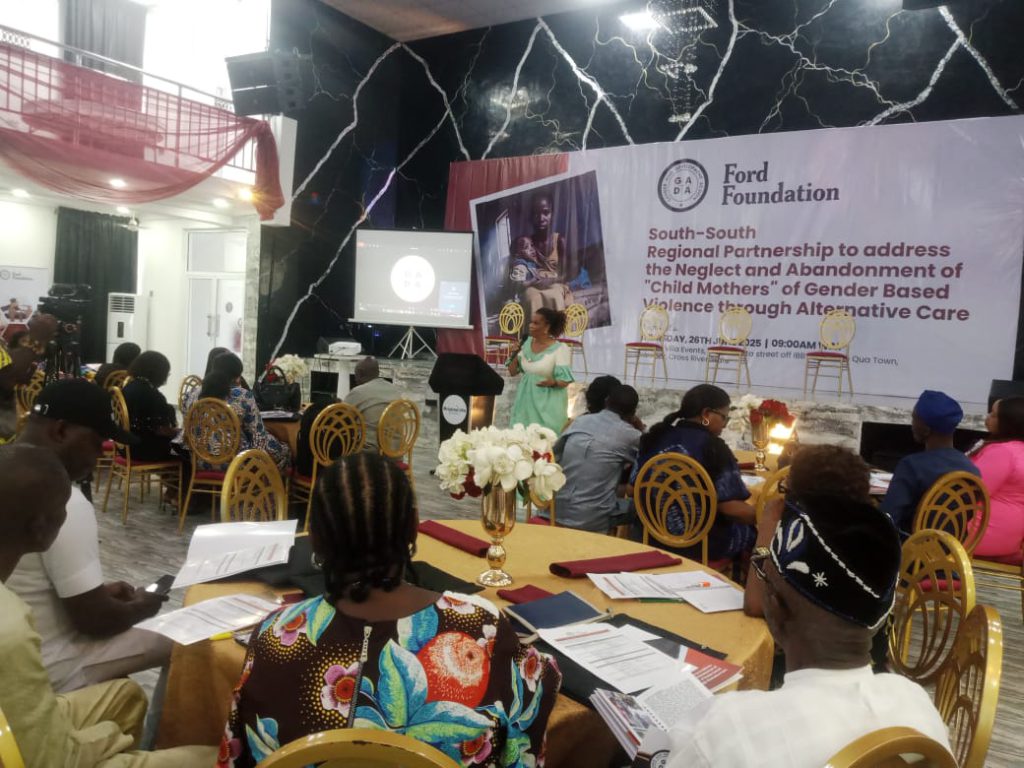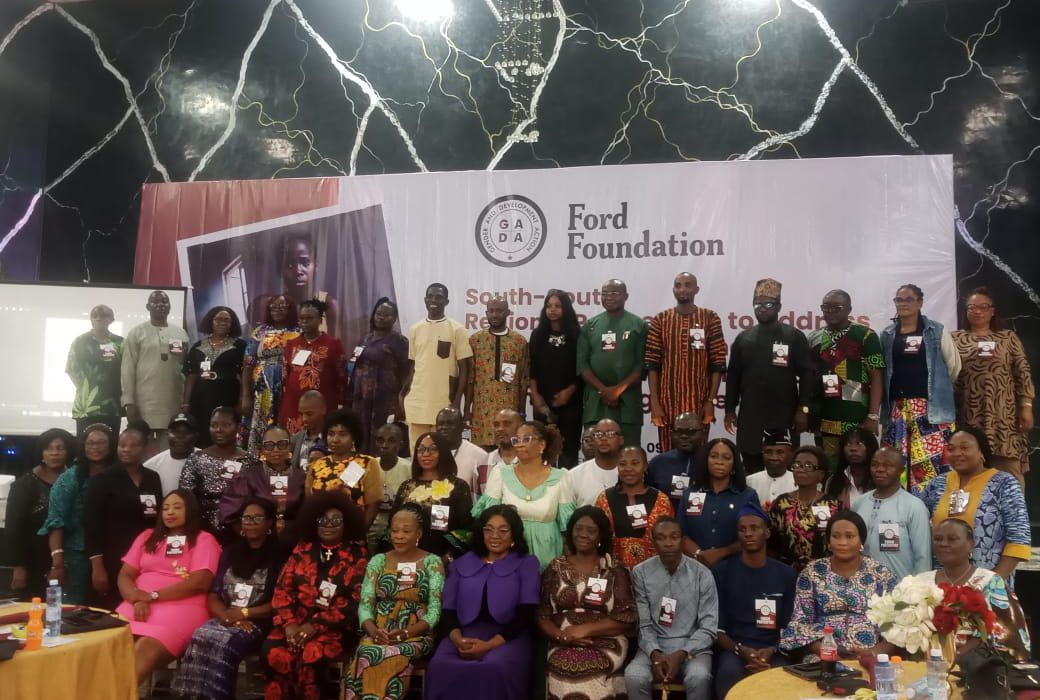By Kelvin Ololo
The World Health Organization (WHO) has reported that over two million girls under the age of 15 give birth every year, an alarming figure that has raised concern among experts.
WHO said, these “child mothers” face serious health risks and often endure stigma, shame, rejection, abandonment, and increased vulnerability to predators and exploitative practices.
The abandonment of child mothers, which experts link to Gender-Based Violence (GBV), is also contributing to the rising number of out-of-school children, street kids and other social vices in Cross River State and across Nigeria.
In response to this growing crisis, professionals from the six states within the South-South geopolitical zone convened in Calabar to explore effective strategies and establish a practical framework for an alternative care system targeting abandoned and neglected child mothers in the region.
READ: Cross River: GADA Engages Traditional Leaders On Harmful Practices, Call For Reforms
Speaking during the gathering, the Wife of the Executive Governor of Cross River State, Dr. Eyoanwan Bassey Otu, represented by her Senior Special Adviser on Administration, Dr. Comfort Oko criticized the societal tendency to punish only the girls involved in underage pregnancies while absolving the men responsible. She emphasized that “the Society owes neglected and abandoned child mothers restitution through awareness, law enforcement, and full implementation of care guidelines. And the Government, civil society and individuals must work collectively to protect and empower this vulnerable group.”

The Director General of the National Agency for the Prohibition of Trafficking in Persons (NAPTIP), Binta Adamu Bello represented by the Director of Violence Against Persons, Tolu Odugbeson, applauded the Ford Foundation and Gender and Development Action (GADA) for their intervention initiatives and their efforts to collaborate with key stakeholders across the region in combating GBV.
“This expansion builds on the original ECOWAS plan of action against trafficking in persons and goes further to address emerging challenges such as sexual and gender based violence and all other exploitative crimes related to human trafficking.”
READ ALSO: Judiciary, Legislature, Police, Charged To Speed Up Cases Of GBV In Cross River
She stated that NAPTIP is committed to strengthening its collaboration with the wives of governors in the South-South, as well as engaging with relevant state ministries, departments, agencies, and civil society organizations.
Speaking also, the Cross River State Commissioner for Social Welfare and Community Development, Prof. Margaret Ene-Ita, described the new framework as one that embodies compassion, inclusion, and timely structural reform. According to her, “It is a bold step toward institutionalizing care, support, and recovery mechanisms. We recognize that addressing the plight of abandoned and neglected child mothers requires more than policy but requires practicality.”

During the presentation of the proposed framework at the workshop, GADA Founder Amb. Nkoyo Toyo, who had earlier urged men to take responsibility, explained that the alternative care system aims to lift victims out of poverty and transition them into state-supported programs.
“We have tied it to the wives of the governors and the wives of the local government chairmen because we believe that through them they can influence their spouses to bring resources into this area to begin to work,” she explained.
RELATED: Court Sentence Church Founder To Life Imprisonment For Raping 16-Year-Old In Calabar
Meanwhile, WHO data highlights that “almost all adolescent births, about 95% occur in low and middle income countries and adolescent births are more likely to occur among poor, less educated and rural populations.”

The workshop brought together representatives of governors’ wives, commissioners, government ministries and agencies, civil society organizations, and NGOs from Delta, Bayelsa, Akwa Ibom, Edo, Rivers, and Cross River States to engage in meaningful dialogue and propose a path forward.
Highlights of the event included goodwill messages, interactive sessions, questions and answers segments, documentary screenings, victim case studies, and a group photograph.
GADA Crusades For Gender Equity, Charge Religious Leaders To Balance Teaching On GBV In Cross River
Since You Are Here, Support Good JournalismCrossRiverWatch was founded on the ideals of deploying tech tools to report in an ethical manner, news, views and analysis with a narrative that ensures transparency in governance, a good society and an accountable democracy. Everyone appreciates good journalism but it costs a lot of money. Nonetheless, it cannot be sacrificed on the altar of news commercialization. Consider making a modest contribution to support CrossRiverWatch's journalism of credibility and integrity in order to ensure that all have continuous free access to our noble endeavor. CLICK HERE |
New Feature: Don't miss any of our news again.Get all our articles in your facebook chat box.Click the Facebook Messenger Icon below to subscribe now
Text Advert by CRWatch :Place Yours

Will You To Learn How To Make Millions Of Naira Making Special Creams From Your Kitchen?.Click Here
Expose Your Business And Make More Sales. Advertise On CrossRiverWatch.com Today



Leave feedback about this